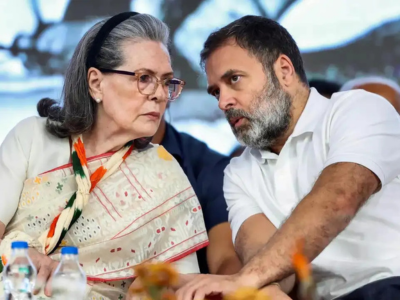In a significant legal development that could have far-reaching political implications, the Enforcement Directorate (ED) has filed a chargesheet against Congress leaders Sonia Gandhi and Rahul Gandhi in connection with the National Herald money laundering case. The case, which has been under scrutiny for nearly a decade, has now entered a critical phase with the submission of a prosecution complaint before Delhi’s Rouse Avenue Court.
Overview of the Case
The chargesheet, filed under the Prevention of Money Laundering Act (PMLA), names several key Congress figures, including Congress Overseas Chief Sam Pitroda, Suman Dubey, and others. The case is now listed for further proceedings on May 25, as directed by Special Judge Vishal Gogne.
The core of the case revolves around alleged financial irregularities in the acquisition of the assets of Associated Journals Limited (AJL) — the publisher of the National Herald newspaper — by a company named Young Indian Private Limited.
Origins of the Probe
The ED’s investigation stems from a 2014 private complaint filed by BJP leader Dr. Subramanian Swamy, who accused Sonia Gandhi, Rahul Gandhi, and other senior Congress members of misappropriating AJL’s assets. According to Swamy, AJL owned real estate and other assets worth over ₹2,000 crore, which were allegedly acquired by Young Indian for a mere ₹50 lakh.
Sonia and Rahul Gandhi were interrogated by the ED in 2022 as part of the investigation. Both leaders hold a 38% stake each in Young Indian, effectively making them majority shareholders. This ownership, according to the ED, is central to the alleged offence of money laundering.
Allegations and Legal Framework
The ED’s charges are framed under Sections of the PMLA, which criminalize concealment, possession, acquisition, or use of proceeds of crime. The agency argues that Young Indian was used as a vehicle to acquire AJL and its valuable properties in a manner that bypassed standard commercial and legal protocols.
In April 2025, the ED issued notices to take possession of immovable assets worth ₹661 crore in Delhi, Mumbai, and Lucknow, which were previously attached in connection with this case.
These properties are believed to have been improperly transferred and utilized under the pretense of debt repayment, further intensifying suspicions of money laundering and criminal breach of trust.
Legal and Political Implications
This case has profound implications both legally and politically. For the Indian legal system, it presents a high-profile test of corporate governance, transparency in political funding, and accountability under financial laws like the PMLA. For the political landscape, particularly the Indian National Congress, it marks a serious escalation at a time when the party is already grappling with internal and electoral challenges.
While the accused have maintained that the transactions were lawful and devoid of criminal intent, the filing of a formal chargesheet signals that the ED believes it has sufficient evidence to prosecute.
What Lies Ahead
With the matter now in court, the next hearing on May 25 will be critical. If the court takes cognizance of the charges, the accused may be summoned for trial. Given the stakes involved, the case is likely to be keenly watched by legal experts, political analysts, and the public alike.
The Law Literates will continue to provide updates and explainers on this evolving case, breaking down the legal proceedings and implications for our readers.

